(Note: Edited to add the date of Election Day.)
In short:
- Storm Nicole will strengthen into a hurricane and hit Florida and the southeastern US on Wednesday.
- The US is officially in a flu epidemic and the CDC is ready to deploy ventilators.
- One in three senior execs expects supply chain issues to last until the end of summer 2023.
One in three senior execs expects supply chain issues to last until the end of summer 2023; US Ag exports up 14% from last year, setting new records.
Here are the sectors that added all those jobs in October:
A survey by SAP SE shows that 49% of execs expect current supply chain issues to last through the end of 2022, and one in three until the end of summer 2023. They say their current supply chain issues primarily stem from global political unrest (58%), lack of raw materials (44%), and rising fuel and energy costs (40%). Only 31% cited inflation as a major contributor. The top three supply chain disruptions expected in 2023 are reduced availability of raw materials in the United States (50%), a slowdown in the construction of new homes (44%), and disruption to public transport due to a lack of drivers (44%).
US agricultural exports in 2022 set a new record of $196.4 billion, up 14% from the previous record in 2021:
Newly released @uscensusbureau data shows US agricultural exports in FY '22 reached a new record of $196.4 billion, up $24.7 billion, or 14%, from the previous record in FY '21. 📊📈 Access all the latest US ag export data in our online GATS database at: https://t.co/SpTiYycgYB. pic.twitter.com/gy0ou7FMOo
— Foreign Ag Service (@USDAForeignAg) November 4, 2022
Despite higher prices, Americans refuse to give up on turkeys for Thanksgiving, according to a new survey. Some savings tactics people will employ this year: buying a turkey early, buying during sales, and serving fewer side dishes.
Some ways to prepare for general supply chain disruptions and inflation:
- Buy extra of what you normally eat or use every time you go for a grocery run. Don’t forget medicines, toiletries, baby and pet items, etc.
- Set some money aside for unexpected bills (or high heating costs).
- Store gas at home.
- Check what type of benefits you are eligible for. As per the previous NR, there should be help available toward energy bills.
The US is officially in a flu epidemic; Hospitalizations highest in a decade; Pfizer bivalent booster generates a strong immune response.
The US is officially in a flu epidemic, and the CDC is preparing to deploy troops and ventilators if necessary. US flu hospitalizations are higher now than they’ve been at this point in every other flu season since 2010-2011. The country is seeing a resurgence of non-Covid respiratory illnesses like flu, RSV, rhinovirus (common cold), and enterovirus with background levels of Covid.
Have you gotten your flu vaccine yet? Look at the difference in influenza transmission compared to 10 years ago… pic.twitter.com/TIUvShRT17
— Zachary Rubin, MD (@rubin_allergy) November 5, 2022
COVID vs Flu vs. Common Cold vs. RSV: What you need to know:
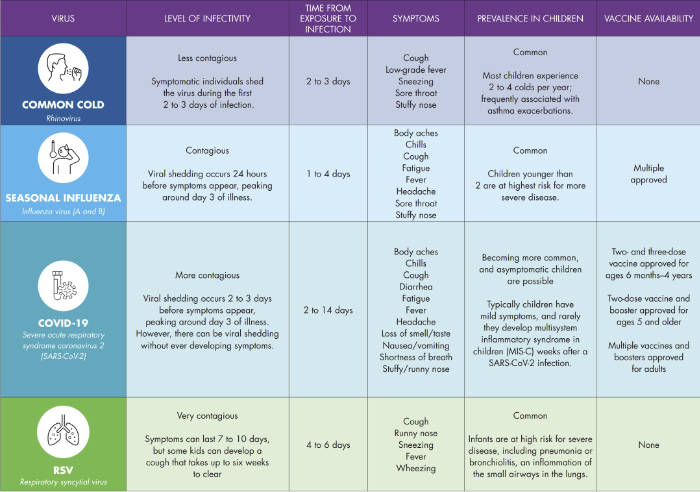
A helpful recap about Covid (how it is most often transmitted, how to protect yourself, the dangers of infection & reinfection, what to do if exposed, and how to prepare):
I'm concerned as we head into winter that most people are unaware/insufficiently informed of how Covid is transmitted, the dangers it poses or how to protect themselves.
Here are some things everyone should know.
A basic overview for you, your friends or family members.
🧵/1— Pete 😷 #COVIDisAirborne (@PeteUK7) November 6, 2022
Other Covid resources:
- Find a free Covid vaccine or the latest bivalent boosters. The latest data shows that the Pfizer bivalent booster generates a stronger immune response than the original vaccine.
- Health plans must cover 8 at-home Covid tests per person per month. How to get free home Covid tests before the winter surge.
- Check here if your at-home Covid test’s expiration date was extended.
- COVID at home: prepare for a severe case, by community member July Lewis.
- Quarantine Go Bag checklist. What you need to grab to stay comfortable if sick and/or self-isolating.
- Hospital go bag. What to bring if you’re on the way to the hospital with Covid.
- Quarantine room safety kit. A kit for keeping a quarantine space safe for those helping with the person quarantined.
Nicole to strengthen into a hurricane and hit Bahamas, Florida, and Georgia on Tue and Wed; Flood threats remain in New South Wales and Victoria; Wildfire Risk to Communities tool now includes tribal and trust lands.
Storm Nicole will strengthen into a hurricane, hitting the Bahamas on Tuesday, then Florida and Georgia on Wednesday. NHS says this storm is going to be a big one and will affect all of Florida and much of the Southeast. Here is our Hurricane preparedness kit checklist.
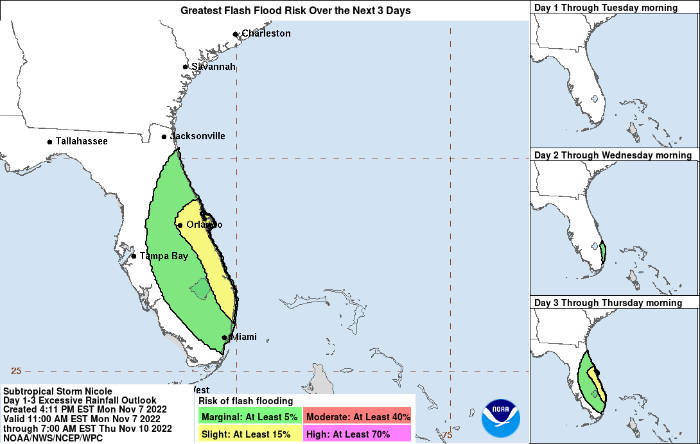
Hurricane (bright pink) and storm surge (light blue) watches have been issued for Florida's east coast as Subtropical Storm Nicole turns northwestward. https://t.co/lN6GalNol8 pic.twitter.com/4GzFfBBAft
— Breaking Weather by AccuWeather (@breakingweather) November 7, 2022
Eastern Florida & coastal Georgia: Storm surge — fast & life-threatening flooding — is possible due to #Nicole. Have a plan.
💠 Follow @NHC_Surge for latest updates
💠 Download the FEMA App: https://t.co/i3YpwYU8PV
💠 Sign up for local warnings & alerts: https://t.co/DOS4888Et5 pic.twitter.com/zDNYGz18cJ— Readygov (@Readygov) November 7, 2022
Flood threats remain in New South Wales and Victoria, with more than 20,000 people expected to be without gas for another month.
Two are dead and dozens injured after 14 tornadoes hit Texas, Arkansas, and Oklahoma on Friday.
The US Forest Service’s Wildfire Risk to Communities interactive tool has been updated to include tribal and trust lands in all 50 states. This is the first time that wildfire risk in tribal areas is consistently mapped across the US:
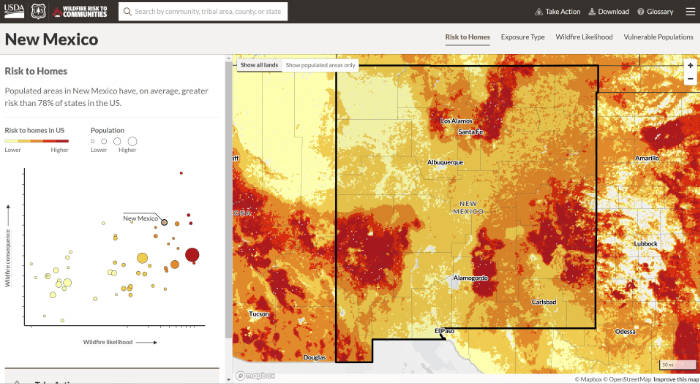
Redfin found that nationwide, homebuyers paid a 46% premium to live in homes with a high wildfire risk compared to homes with a low wildfire risk this year. While there’s nothing wrong with wanting to live near the wilderness, if buying a property near the wilderness or in a wildland-urban interface (WUI), be also prepared to:
- Create defensible zones around your house.
- Build or upgrade with fire-resistant materials (which could reduce losses by 75%).
- Prepare for bugging out at the last minute.
Here’s our guide on how to prepare for wildfires.
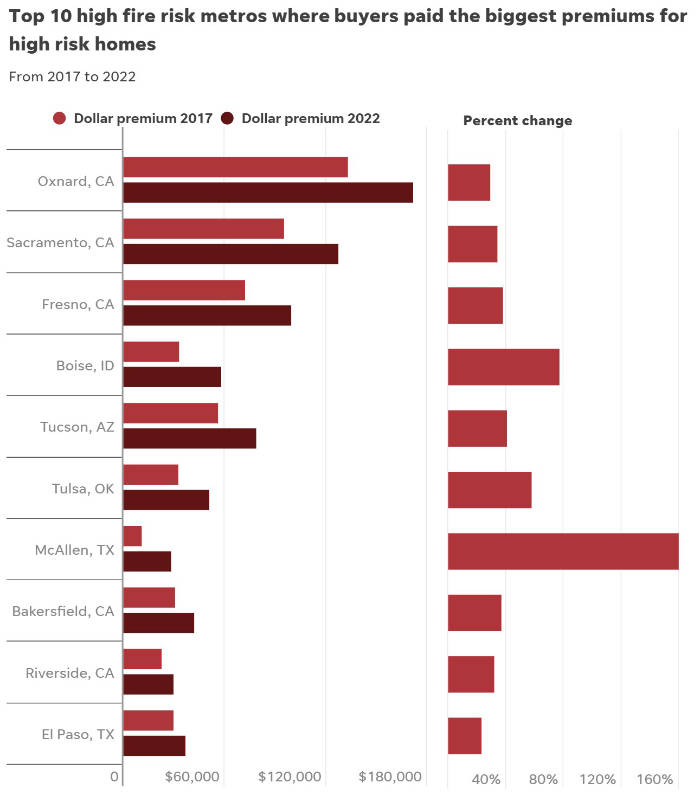
The rest
A few articles to prepare for in-person voting on Election Day (Tuesday Nov 8):
- Everything you need to vote.
- Here’s when polls close in every state on Election Day
- What to do if your vote is challenged on Election Day (Note: I posted this in the last roundup, too, but it’s a good one and it’s worth sharing again.)
Two South Korean miners were rescued from a collapsed mine after nine days. They survived by pitching a tent to keep warm, and by eating instant coffee.
Here is the transcript of the 60 Minutes segment featuring preppers in 2022 and an interview with The Prepared’s founder. And here is the whole episode (the segment starts at about 28:22).
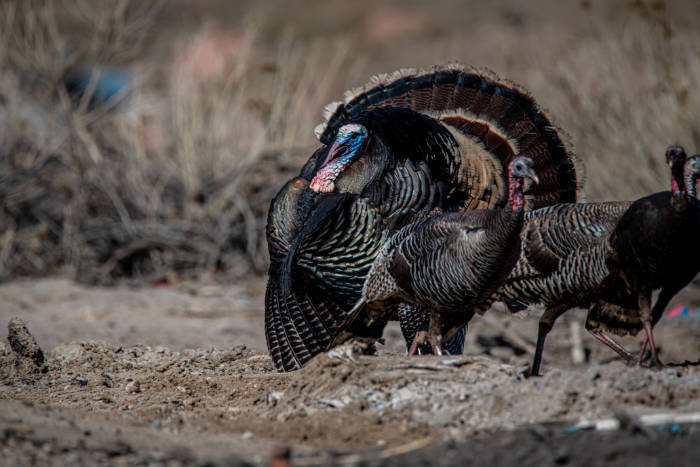
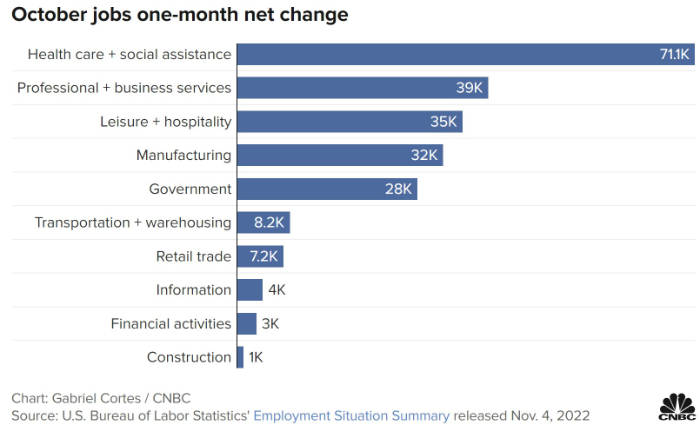
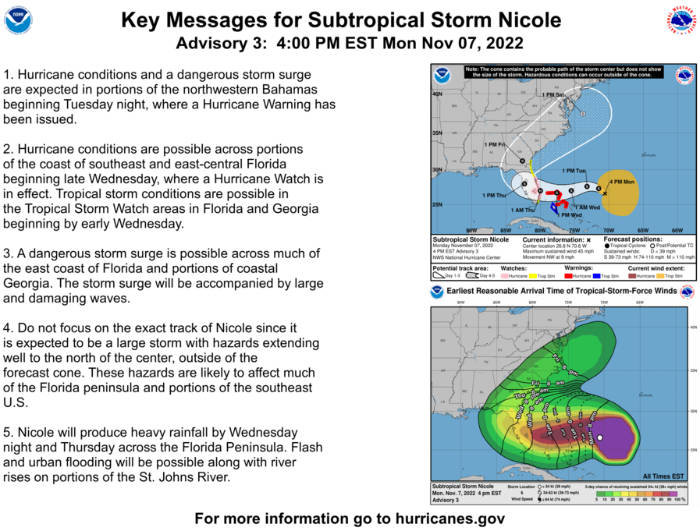
You are reporting the comment """ by on